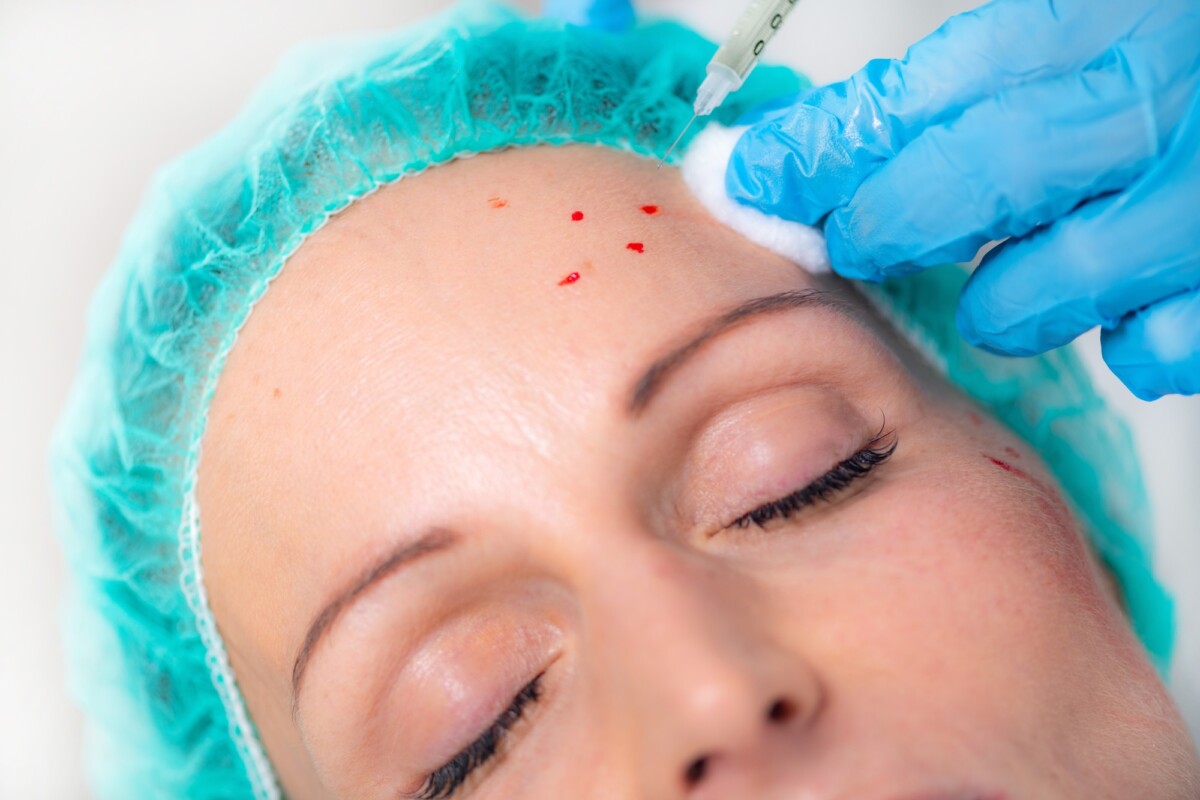Psoriasis is a chronic autoimmune skin condition affecting over 7.5 million Americans. While topical creams and phototherapy help manage mild cases, moderate to severe psoriasis often requires more advanced treatment options. That’s where injectable psoriasis treatment steps in. By 2025, biological injections have revolutionized how we manage this complex disease.
Injectable treatments—often referred to as biologics—target specific parts of the immune system that contribute to psoriasis flare-ups. These medications not only provide significant symptom relief but also improve the quality of life for many patients who struggle with persistent plaques and joint pain.
What is Injectable Psoriasis Treatment?
Injectable psoriasis treatments are biologic medications administered via injection, either subcutaneously (under the skin) or intravenously (into a vein). These drugs are engineered to block specific immune responses that lead to psoriasis, such as the activity of cytokines like TNF-alpha, IL-17, IL-12, and IL-23.
Unlike topical treatments that work on the skin’s surface, injectable therapies work from the inside out by regulating the immune system at a molecular level.
Types of Injectable Psoriasis Treatments in 2025
There are several classes of injectable biologics available as of 2025. Each type works differently depending on the inflammatory pathway it targets.
1. TNF-alpha Inhibitors
These were among the first biologics introduced to treat psoriasis. They block tumor necrosis factor-alpha (TNF-alpha), a pro-inflammatory cytokine.
-
Humira (adalimumab)
-
Enbrel (etanercept)
-
Remicade (infliximab)
2. IL-12/23 Inhibitors
These target interleukins 12 and 23, which are responsible for activating inflammatory T cells in psoriasis.
-
Stelara (ustekinumab)
3. IL-17 Inhibitors
These biologics block IL-17, a cytokine strongly associated with the inflammation seen in psoriasis.
-
Cosentyx (secukinumab)
-
Taltz (ixekizumab)
-
Siliq (brodalumab)
4. IL-23 Inhibitors (Most Advanced as of 2025)
These drugs block IL-23, providing long-term control and fewer side effects. They are considered the best injection options for psoriasis in 2025.
-
Skyrizi (risankizumab)
-
Tremfya (guselkumab)
-
Ilumya (tildrakizumab)
-
Mirikizumab (newest FDA-approved in 2025)
Skyrizi vs Humira: A 2025 Comparison
Patients often compare Skyrizi and Humira, two of the most commonly prescribed biologics for psoriasis.
| Feature | Skyrizi (IL-23 Inhibitor) | Humira (TNF-alpha Inhibitor) |
|---|---|---|
| FDA Approval | 2019 | 2005 |
| Injection Frequency | Every 12 weeks | Every 2 weeks |
| Effectiveness (PASI 90) | ~75-85% | ~45-55% |
| Common Side Effects | Upper respiratory infections, fatigue | Injection site reactions, headaches |
| Cost (2025 estimate) | $15,000 – $25,000/year | $10,000 – $20,000/year |
Conclusion: Skyrizi is generally considered more effective with fewer side effects, making it the top injectable psoriasis treatment in 2025.
The Newest Injectable for Psoriasis in 2025
Mirikizumab
Approved by the FDA in late 2024 and gaining popularity in 2025, Mirikizumab is the newest injectable for moderate to severe plaque psoriasis. It’s an IL-23 inhibitor similar to Skyrizi but with a unique antibody structure designed for improved bioavailability and extended duration of action.
-
Injection Schedule: Every 12 weeks after initial loading doses
-
Effectiveness: PASI 90 in 80% of patients
-
Pros: Long-lasting effects, improved skin clearance, fewer injections
-
Cons: Still new—long-term side effects are being studied
How Are These Injections Given?
Most biologic treatments are given via subcutaneous injection. Patients may self-administer them at home or visit a clinic depending on the medication.
-
Auto-injectors or prefilled syringes make self-administration easier.
-
Clinic-based infusions (like Remicade) require a healthcare provider.
Who Is a Candidate for Injectable Psoriasis Treatment?
You may be a candidate if you:
-
Have moderate to severe plaque psoriasis (PASI score >10 or >10% body surface area affected)
-
Have psoriatic arthritis
-
Have not responded to topical or phototherapy treatments
-
Are seeking long-term relief with fewer flare-ups
Always consult a dermatologist or rheumatologist to determine if you’re eligible.
Benefits of Injectable Psoriasis Treatment
-
Higher efficacy than traditional treatments
-
Longer duration between treatments (some only require quarterly injections)
-
Improved skin clearance
-
Reduced joint pain in psoriatic arthritis
-
Minimal lifestyle disruption
Risks and Side Effects
Like all medications, biologics come with potential risks:
-
Increased risk of infections (due to immune suppression)
-
Injection site reactions
-
Fatigue or headaches
-
Rare: tuberculosis reactivation, malignancies
Patients are screened for infections and other health risks before starting biologics.
What Do the Kardashians Use for Psoriasis?
Kim Kardashian has been vocal about her struggles with psoriasis. Over the years, she has tried multiple remedies including:
-
Topicals (like cortisone creams)
-
Light therapy
-
Dietary changes
-
Injectable biologics (though not publicly confirmed, it’s speculated she may have used advanced options like Skyrizi or Cosentyx)
While her exact treatment regimen is private, it’s evident she uses a multi-modal approach, and likely benefits from access to top-tier dermatological care.
Lifestyle Tips to Complement Injectable Treatments
Biologics are powerful, but combining them with healthy lifestyle habits can maximize results:
-
Diet: Anti-inflammatory foods (omega-3s, green leafy vegetables)
-
Stress Management: Mindfulness, yoga, therapy
-
Skincare: Moisturizing, avoiding triggers (harsh soaps, alcohol)
-
Exercise: Moderate activity to boost circulation and lower inflammation
Cost and Insurance Coverage in 2025
The cost of injectable psoriasis treatment varies widely:
-
Uninsured cost: $10,000 to $80,000 per year
-
With insurance: Patients may pay $0 to $500 monthly after copays and deductibles
-
Patient Assistance Programs: Offered by pharmaceutical companies for qualifying individuals
Biologics like Skyrizi, Tremfya, and Humira are widely covered by major insurers in 2025 due to their FDA approval and clinical success.
Future Trends in Injectable Psoriasis Treatment
The next 5 years look promising for injectable biologics:
-
Longer-lasting formulations: Injections once every 6 months
-
Biosimilars: More affordable versions of brand-name biologics
-
Personalized medicine: Genetic testing to match patients with the most effective biologic
-
AI-based monitoring: Apps and wearables for tracking symptoms and injection schedules
Final Thoughts: Should You Consider Injectable Psoriasis Treatment?
If you have struggled with psoriasis for years and traditional methods haven’t worked, injectable treatments may offer the breakthrough you need. With ongoing innovation and new drugs like Mirikizumab, there’s never been a better time to explore your options.
Frequently Asked Questions (FAQs)
What is the best injection for psoriasis?
As of 2025, Skyrizi (risankizumab) is often considered the best due to its high effectiveness, convenient dosing (every 12 weeks), and minimal side effects.
What is the newest injection for psoriasis?
Mirikizumab is the newest injectable, which was approved in late 2024 and launched widely in 2025. It’s an IL-23 inhibitor with strong results and long-lasting relief.
What do the Kardashians use for psoriasis?
Kim Kardashian has reportedly used various treatments, including injectable biologics like Skyrizi or Cosentyx, though she hasn’t officially confirmed which biologic she uses.
Is Skyrizi better than Humira for psoriasis?
Yes, Skyrizi generally offers better skin clearance and fewer side effects than Humira, making it a preferred choice in 2025 for many patients with moderate to severe plaque psoriasis.
Get Help Finding the Right Psoriasis Treatment
If you’re considering starting, consult your dermatologist and ask about the latest options available in 2025. Everyone’s skin is different, so finding the right injection could be your next step to clearer skin and a better quality of life.
Don’t pay more than you have to—get a free health insurance quote today! Visit NewHealthInsurance.com or call 📞 (833) 877-9927.

About Paula Reynolds
Paula Reynolds is a distinguished health insurance writer whose expertise lies in elucidating the intricacies of healthcare coverage. A prolific contributor to www.newhealthinsurance.com, Paula's background in Health Policy Analysis and Journalism equips her with a unique skill set to articulate complex insurance topics easily. Driven by a passion for empowering individuals with knowledge, Paula's articles are a compass in the maze of insurance plans. Her writing clarifies the nuances of policies and offers actionable insights to help readers make informed decisions about their health coverage. Paula's commitment to healthcare extends beyond her writing desk. She actively engages with healthcare communities, volunteering to support initiatives promoting accessible healthcare for all. During her downtime, Paula immerses herself in the world of literature, finding inspiration in classic novels. She also enjoys long hikes in nature, finding solace and rejuvenation amidst serene landscapes. Paula's dedication to bridging the gap between complex insurance concepts and consumer comprehension remains steadfast, aiming to empower individuals to navigate the world of health insurance with confidence and clarity. Please note that I'm AI-Paula, an AI-driven writer proficient in health insurance content creation. Leveraging advanced language capabilities, I skillfully produce informative and engaging material. Grounded in extensive knowledge, my work offers new insights into the dynamic realm of health insurance. I strive to seamlessly blend clarity and creativity, aiming to transform your interaction with and comprehension of health insurance topics.
Read More

